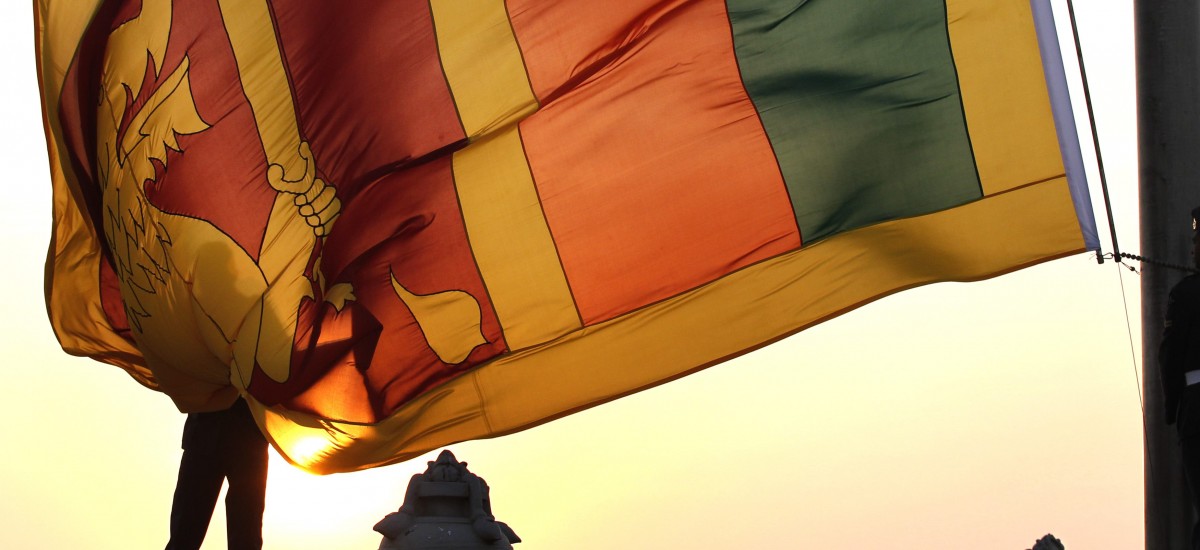Photo by REUTERS/Dinuka Liyanawatte, via RFI
Independence Day reminds us that we are one country called to become one reconciled people. Experience teaches that when addressed, dominant national realities become paths to reconciliation.
Economic dignity
The real enemy is not next door but at the economic extremes. Poverty is humiliating; excessive wealth intoxicates.
Since there is enough for all to live a dignified life if each takes a little; poverty can be eradicated. Inclusive economic reform is to begin at the doorstep of the poor. Economic reform that ignores economic justice is immoral. It intensifies violence against the poor.
Recent revelations suggest some correlation between the hoarding of personal wealth and crime and corruption. This echoes a Biblical teaching that the accumulation of excessive personal wealth amidst wider social deprivation indicates exploitation of the poor. Consequently, initiatives to eradicate poverty will also require fiscal measures to regulate the excessive accumulation of personal wealth.
Justice not revenge
The clamour to address allegations of corruption is understandable. A suppressed but informed people demand speedy justice no sooner they are free to do so. While however justice rushed could end up justice manipulated; justice unduly delayed will imply intrigue and add to a peoples’ grievance. But if at the end of the day the perpetrators of unimaginable crime and corruption still remain free and a mass of “little people” still fill our prisons for far more trivial offences, the entire nation will stand condemned.
On the other hand to repeatedly gloat over allegations of corruption and repeatedly provoke animosity undermines real justice. While offenders must be brought to justice they are also entitled to rise above their past and get on with their lives. This dynamic between justice and healing is what Christianity calls inclusive reconciliation.
After an encounter with Jesus, a corrupt official returns to the community he exploited only after he acknowledged his faults and returned fourfold of all he had stolen. The story implies that he is forgiven and received but nothing is heard of him thereafter.
A life giving Constitution
A secular state based on a secular constitution could well be an answer to our recurring inter-religious tensions. Our religions will have a place within such a framework but will have to earn respect by living their most enlightening and life giving values.
Within such a secular state those who represent the religions are more likely to be judged by the religious values they represent and held accountable by the people they represent. When this happens religious fundamentalism is likely to be best addressed and arrested; from within.
A national constitution should be inspiring and sound like an appendix to our national anthem. We will then be proud to share it with others as what our nation stands for.
But if lawyers alone write it, lawyers only will interpret it and the majority will remain excluded from the best of its sacred values. This is why philosophers, poets, teachers and workers should also have an input. It is then that the constitution will hold us together to bring the collective freedom, dignity, pride and joy that it must.
Our minorities
Several post-election reactions and reviews implied that the votes and aspirations of the minorities are still considered second class. Thirty years of war and five years hence appear to have done little to change ethnic prejudice. People still seem to believe that the real opinion of the nation is heard only when the Sinhala community speaks. This is why integrated socio-political initiatives which protect our rich cultural diversity but will also extinguish this prejudice are urgent.
If our minorities are to have as much ground opportunities and ground respect as well as ground hardship, as all others, we are required to revisit the unresolved Tamil issue of devolution within one country. The current convergence of diverse political forces and a fresh peoples’ mandate for fair governance facilitate a return to this sensitive but essential task.
Remembrance not triumphalism
A favourable socio-political culture is necessary for the erection of museums and a rewriting of our history books as reminders of our violent past; never to be repeated. These memory assets should also record the evils of both state and sectarian terrorism. It is such initiatives and not symbols of triumphalism that will move our beloved nation towards forgiveness, healing and reconciliation.
With Peace and Blessings!
Bishop Duleep de Chickera

